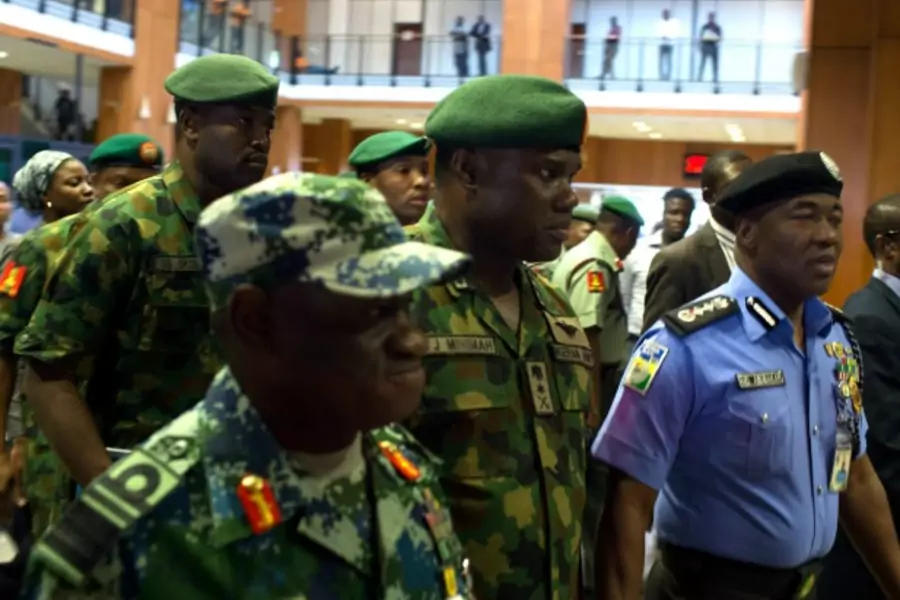More on:
A Nigerian army spokesman said on June 10 that “quite a number” of senior military officers have been fired, and some have been turned over to the Economic and Financial Crimes Commission (EFCC) for investigation of charges of corruption. The spokesman, Colonel Sani Kukesheka Usman, is quoted in the media as saying, “. . . not too long ago some officers were investigated for being partisan during the 2015 General Elections. Similarly, the investigation by the presidential committee investigating defense contracts revealed a lot. Some officers have already been arraigned in court by the EFCC.” He went on to say: “The military must remain apolitical and professional at all times.”
Thus far, the military authorities have not made public the names of those fired. An army officer told The Associated Press on condition of anonymity that they number more than fifty. Colonel Usman has said publicly that the “retired officers were mainly some major generals, brigadier generals, colonels, lieutenant colonels, and a major.” Sahara Reporters on June 12 published a list of “some of the officers compulsorily retired.” That list numbers forty-seven, including eleven major generals, fifteen brigadier generals, and nine colonels.
Already being investigated for corruption are two former chiefs of defense staff. One, Air Chief Marshal Alex Badeh is charged in court for stealing twenty million dollars to buy a shopping mall. Former National Security Advisor Sambo Dasuki is also on trial; he is accused of diverting $2.1 billion of the security budget to support former President Goodluck Jonathan’s reelection campaign. (At the time, the Nigerian total security budget was about six billion dollars.)
This round of compulsory retirements is clearly a part of President Muhammadu Buhari’s “war against corruption.” It is also significant that Colonel Usman referred to military partisanship in the 2015 General Election. Military support for incumbent presidents has long been the “elephant in the living room” of Nigerian politics. Election rigging, in which the military facilitated or participated, has long been especially salient in the South and East, those parts of the country that voted for Jonathan in 2015. Already some from those parts of the country are characterizing Buhari’s anticorruption campaign in general as a witch hunt against Jonathan’s supporters.
Nigeria was subject to military government for a generation after the 1967-70 civil war, with a pattern of coups and failed coups often shaped by internal military issues. However, Nigeria has been free of overt military intervention since 1998, with the trajectory being toward civilian government and better elections. Indeed, in 2015, for the first time in the country’s history, the leader of the opposition, Muhammadu Buhari, defeated an incumbent president, Goodluck Jonathan, and assumed office. Conventional wisdom is that the era of military coups in Nigeria is past. For more than a generation, successive governments, both military and civilian, have starved the military for resources, in part to reduce its capability of mounting coups. Nevertheless, as recently as 2009-2010, during the illness of then-president Umaru Yar’Adua, there were whispers of possible military intervention to spare the country chaos. Thus far, there does not seem to be a coherent, organized military pushback against Buhari’s anti-corruption campaign. Nevertheless, military coups do continue elsewhere, with Egypt, Thailand, and Yemen as salient examples, and hence the need for Buhari’s administration to keep vigilance with respect to the military.
More on:
 Online Store
Online Store
